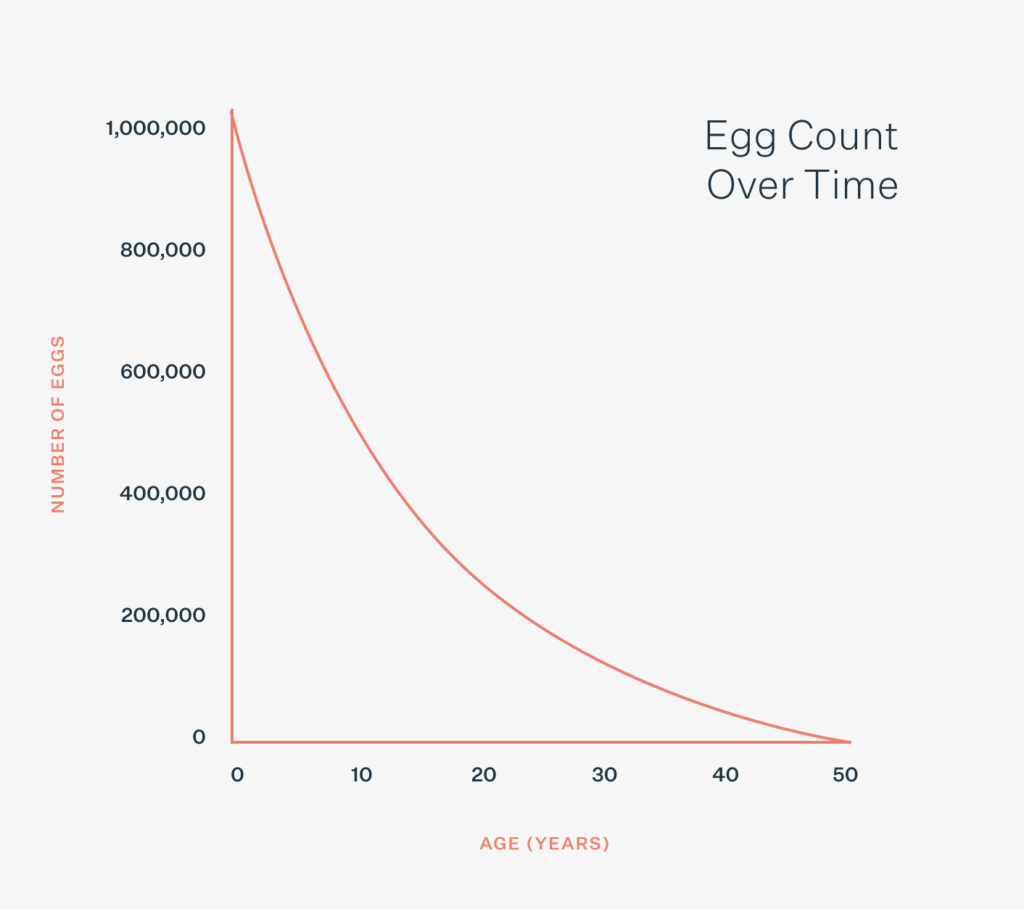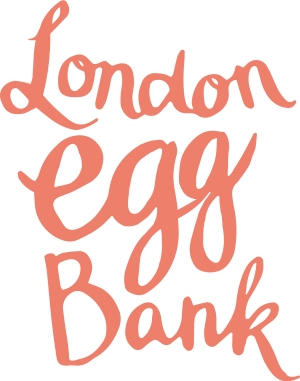Fertility and Age
When trying to determine whether or not you’ll be able to conceive naturally, you should consider ageing the most important factor. As you age, so do your eggs, with both their quantity and quality decreasing over time.
You will be most fertile in your 20s, but in your 30s fertility gradually declines, with a steeper fall happening after age 35.
What is normal?
When you are born you have the most eggs you’ll ever have, typically between 1-2 million eggs in your ovarian follicles at the time of birth. This then decreases to a number of 300-500,000 once you reach an age where you start ovulating. This is because your body will reabsorb any unused eggs back into your body.

When you are experiencing puberty, a group of follicles that each contain an immature egg will have the potential to grow and ovulate each month. However, despite having several eggs that have the potential for ovulation, you’ll usually only ovulate about one egg every month. For the eggs that fail to make it to the ovulation stage, they will be reabsorbed back into your body.
Every time you ovulate, you can expect to lose around 1,000 follicles or potential eggs. This typically happens between 400 and 500 times throughout your lifetime. As you age, this loss will accelerate and your original store of eggs will deplete.
As you become older, your age will also impact the quality of your eggs too. This may mean that you not only are less likely to get pregnant but if you do, there is a greater risk of miscarriage.
When you’re in the cycle of egg freezing, medication prompts the other eggs to mature, which means your body produces multiple eggs in one cycle from the potential eggs that are otherwise reabsorbed. Collecting these eggs for freezing doesn’t reduce your overall egg count, it just uses more of the eggs you already have.
What’s important for successful egg freezing?
Egg quantity
Your fertility potential is determined by your ovarian reserve – the number of eggs you have, and the number of eggs you may be able to freeze in one cycle.
In order to understand what your ovarian reserve is, we perform two different tests. The first is an AMH (anti-Müllerian hormone) test, and the second is an antral follicle count (AFC). Understanding your ovarian reserve is the first step in determining if you are suitable for egg freezing.
Egg quality
Whilst the number of eggs you have is important, the quality of your eggs is even more important. The quality of an egg is measured by determining whether or not an egg is genetically normal or abnormal.
Your age will impact the number of normal eggs you have. As you become older, you will have more abnormal eggs and therefore your chance of conceiving with a normal egg is lower. As a result, you have a higher risk of miscarrying or having a child with a genetic disorder.
Why egg freezing works
Egg freezing lets you freeze your younger, healthier eggs to preserve their quality and allows you the chance to achieve a successful pregnancy when you’re ready to use them. As you get older, your chances of getting pregnant naturally reduce from about 25% each month age 25 to only 5% each month once you reach 40.
Once your eggs are frozen, they stop ageing – even though the rest of you doesn’t. It’s the age of the egg that matters most when it comes to giving yourself a better chance to achieve a successful pregnancy.
Ready to find out more about your fertility and schedule your fertility health check? Book your fertility health check and discuss your results with our fertility experts
